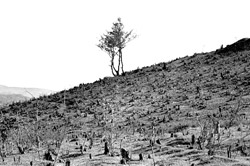Beginning in last five editions
Some people reading this series of articles consider it as a late PR of the Armenian National Movement. Others say the opposite; they say that I am purposefully presenting the Armenian opposition so that the ANM can come out clean. Both viewpoints are wrong because I could have simply not written these articles. Thank God there are so many daily topics to talk about that I don’t really need to take a glance backward, but I am worried about the upcoming elections that claim to definitely be conducted free, fair and transparent. They are going to be FFT (free, fair and transparent) not because Armenian authorities have realized the negativity of the opposite and have devoted themselves to democratic values, rather because writing the numbers, not actually counting them, is something of the past. This is the current situation because Armenia no longer has a political system, and it is necessary to understand what happened to that system and when it ceased to exist.
In continuation of the story of the previous five articles (but not the history), I am reaching the point which may be called the battle. It was back in 1996, better yet, spring of 1996, when the Metsamor nuclear power plant started operating again. This was slowly getting rid of the energy crisis for good, and the energy crisis was the main thing that was going to bring the authorities down to their knees. People could somehow explain and understand unemployment, they could somehow explain and understand the hunger and malnutrition, and the low salaries and pensions were also somehow explainable. People just did not understand why the authorities cut off electricity. It was simply unexplainable, a mystery that I discovered for myself two years ago during work conducted with specialists. It was even more unexplainable in mid-1995 when the authorities had started to add more hours of electricity and lessen the darkness. People started to suspect that there was somebody behind all this who was turning the lights on and off, increasing and decreasing amounts of electricity.
The restart of the nuclear power plant could not have dispersed the suspicions forever, but it was installing trust and trust could have made people forget about the disaster. The authorities had to hurry; they had to spread the idea of grounding (it was produced but not distributed to the population) into circulation, their version of the mysterious disappearance of mazut (black oil) and finally lead up to the conclusion that it was all done in order to bring the revolutionary people down to their knees. This was also aimed at the self-justification of the then-existing authorities’ PR, however it didn’t turn out that way because the government was thinking that it was doing more positive things than negative and did not feel the need for PR. The authorities were relying on the people’s healthy criticism, taking into consideration that people are more sensitive after major stress, that they need to come back to reality after major stress so that, let’s say, comparative judgment may replace suspicion.
People who suffer from suspicion are not pleased with hearing things that disperse their suspicions; they need to suspect something, and each time prominent oppositionist Arshak Sadoyan appeared on the scene and started talking about the theft of mazut (black oil), the masses were filled with joy. One time I asked one of the experts with whom I discovered the secret to the energy crisis why the authorities did not explain to the people back then.
“There was no need to explain then, perhaps there is no need now either,” he said jokingly. “A secret is always more precious than the revelation.”
The second presidential election was going to draw the border; a border line that was going to leave the bitterness and suffering on the other side. The opposition understood that by allowing the existing authorities to pass the borderline, it would lose the people. The people were afraid that by passing that borderline with the current authorities, they wouldn’t be able to enjoy the fruits of the loss of suffering and bitterness of the past.
The nonsensical thought of “Anyone but them”, which is successfully in circulation today in the minds of Armenian society, was becoming the flag of the electorate of the opposition of the time. The electorate did not need to understand that that was simply a stick without the flattering silky cloth, but people who were getting ready to come to power needed to realize that it was going to be easier to work with the “liberated” people later. They needed to take one step back in order to take two steps ahead in the future. But how was the oppositional leader of the time supposed to know that he would only receive 12% of the votes only a year after the scandalous presidential elections of 1996?
To be continued…

